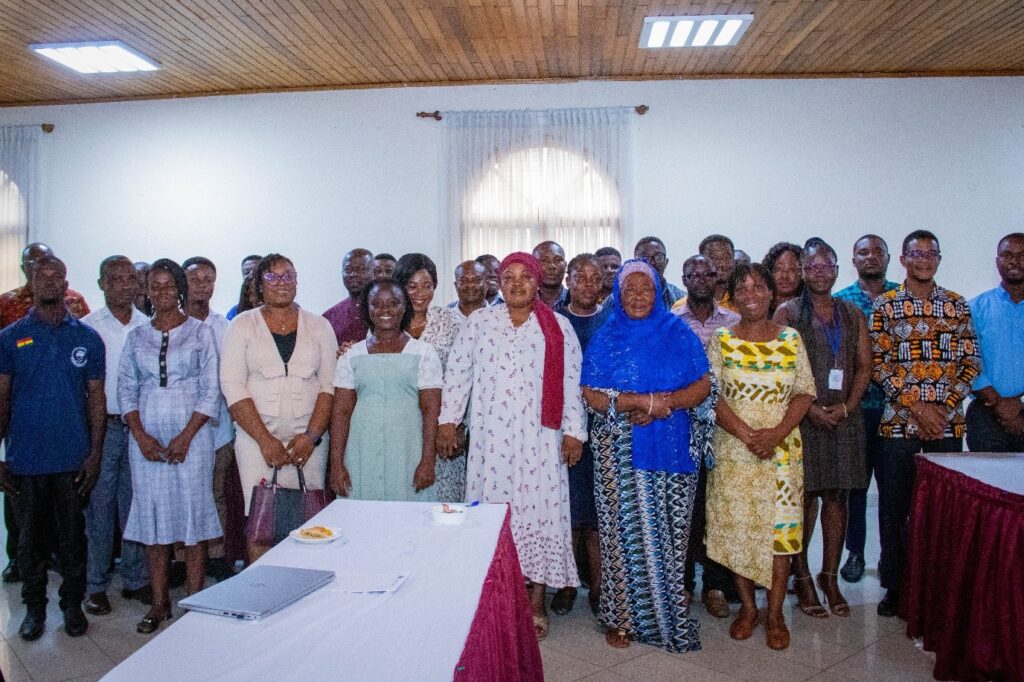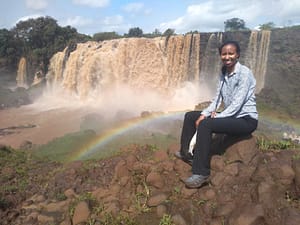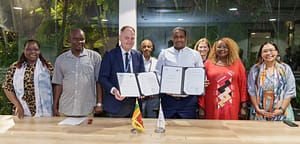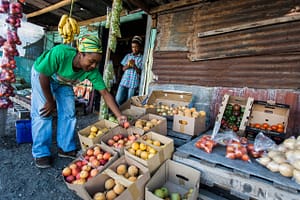Authors: Dzifa Agbefu, Solomie Gebrezgabher, Eric G. Nartey

The International Water Management Institute (IWMI) in collaboration with C40 Cities Finance Facility (CFF) and the Accra Metropolitan Assembly (AMA) organized a two-day training on circular bioeconomy practices. The training focused on composting, business model development and occupational health and safety measures targeting representatives from AMA, Ministry of Sanitation and Water Recourses (MSWR) and other key stakeholders in the waste management sector including the informal sector. The training was conducted upon request of the AMA and aimed to empower AMA staff and other stakeholders with the knowledge and tools to support the Accra’s waste source separation and composting initiatives. This effort is crucial for diverting organic waste from landfills, reducing greenhouse gas emissions, and fostering the transition to a circular economy (CE).
Accra, like many rapidly growing urban centers, faces mounting challenges in managing its waste sustainably. Organic waste constitutes a significant portion of the city’s waste stream, much of which ends up in landfills, contributing to greenhouse gas emissions and environmental degradation. The concept of a circular economy offers a transformative framework for sustainable development, moving away from the traditional linear model of “take, make, dispose” to a regenerative system that emphasizes resource efficiency and waste minimization. This training exemplified how the principles of CE can be applied in practical, scalable ways. Through interactive sessions, participants explored how waste—often seen as a problem—can become a resource that fuels a greener economy.
The training highlighted composting as a critical component of Accra’s CE strategy. Composting not only helps manage organic waste but also produces nutrient-rich compost that can improve soil health and agricultural productivity. Participants were introduced to composting technologies, including Covered Aerated Static Pile (CASP) systems, which enhance efficiency and minimize environmental impacts. This technical foundation was complemented by discussions on business models for setting up and operating composting facilities including occupational health and safety, ensuring that participants left with both the scientific knowledge and the entrepreneurial mindset needed to drive change.
Victor Kotey, Deputy Waste Management Director of the AMA, highlighted that the theme and contents of the workshop was very useful in bridging critical knowledge gaps for middle level technical staff. He highlighted the expertise of the facilitators and suggested future workshops consider including field trips to enhance learning and engagement.
Prince Dzramedo, Senior Environmental Health Assistant, Ablekuma North Municipal Assembly found the workshop highly informative, offering practical techniques that significantly improved participants’ understanding and application of sustainable waste management practices.
As Accra strives to manage waste sustainably, workshops like this are pivotal in equipping local authorities and stakeholders with the necessary skills. The training demonstrated that with the right knowledge, waste can become a valuable resource fueling a circular economy. It also underscores the power of collaborative capacity-building to inspire meaningful change, for a more resilient future.







